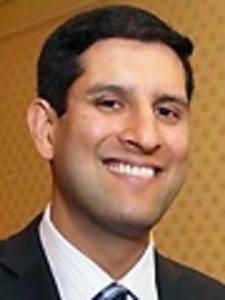Vivek Kundra is Obama’s evangelist for cloud computing.

On Friday, Kundra, the White House Federal CIO, faced one of his first big tests as he testified before the U.S. Congress about cloud computing and why the Obama administration believes it’s key in helping the government modernize its technology infrastructure.
To get a picture of what Kundra believes, Cloudbook featured several videos featuring the president’s technology advisor. In reviewing the videos, Kundra repeats four key points about why it is critical for the U.S. Government to adopt cloud computing:
- Government IT is outdated and sometimes antiquated. People work on mainframes at work and on any number of Web oriented platforms at home.
- Federal data centers now number more than 1,000. Consolidations is essential but so are smarter methods for using apps that leverage the cloud.. The private market is cutting back in data centers through private clouds, hybrids and public services.
- Cloud-based, data driven services can drive policy. What this requires are platforms that provide a base for interaction between constituents and stakeholders in federal agencies. Interoperability between agencies across platforms requires cloud-driven services with core sets of standards. In such an environment, apps provide a level of portability and means for decreasing the need for multiple on-premise servers to run one application.
- Transparency for Kundra means the capability to get real-tine access to public data. The cloud makes that more of a reality.
On to the videos…
Government Is Far Behind the Private Sector
In his address last month to the Cloud Computing Forum and Workshop, Kundra lead his discussion by underscoring the problems he faced on his first day of work at the White House. It was like walking into a technology environment that was 10 years old. Obama had to fight to get a Blackberry. He used the story to illustrate how behind government is compared to the private sector.
Takeaway: Kundra argues for modernization, making it clear that the government needs to be on par with the private sector.
An Infrastructure Shift Is Underway
Kundra talks a lot about the fundamental shift in infrastructure. He makes a connection between small business and the public sector. Small business is shedding its IT assets so they can save money but also work in real-time. it allows for productivity. The public sector can achieve the same results through consolidation
Takeaway: It’s a matter of economics. Data centers consolidation and greater use of cloud-based applications can save billions. Upsides include cross-agency collaboration, greater degrees of interaction with citizens and a modern infrastructure for the workings of government.
U.S. Government as a Platform: Apps Drive Public Policy
Kundra maintains that the U.S. Government needs to operate as if it is a platform. The data generated from the platform must drive public policy. The federal government can not be an island separate from the people of the United States. Cloud computing will enable people to interact with the federal government, using the data to generate ideas and shift the debate about public policy issues.
Takeaway: Cloud-based Data.gov is an example of the platforms that need to be built in order for the interaction to occur between citizens and the government.
Transparency
Transparency. We hear that term a lot but we’d argue that it’s a key reason why the American people have a more clear idea about the Obama Adminstration’s technology policy than prior administrations. It’s working for Obama and Kundera will continue to drive this topic. It’s illustrative of a core foundation of society in the belief that information about our government should flow freely. It also again demonstrates the power of the cloud.
Takeaway: USA.gov and usaspending.gov are hallmarks of the Obama administration’s transparency. These services will continue to serve as examples for Kundra to show what can be achieved with cloud computing while continuing to embrace ideals centering around accountability.
Will Kundra succeed? We think so. But it will be another issue all together to gain adoption. The US. Congress is made up people who represent hundreds of constituencies. How they react to data centers shutting down will have its own affects on policy, no matter how great the benefits may be from cloud computing.

















